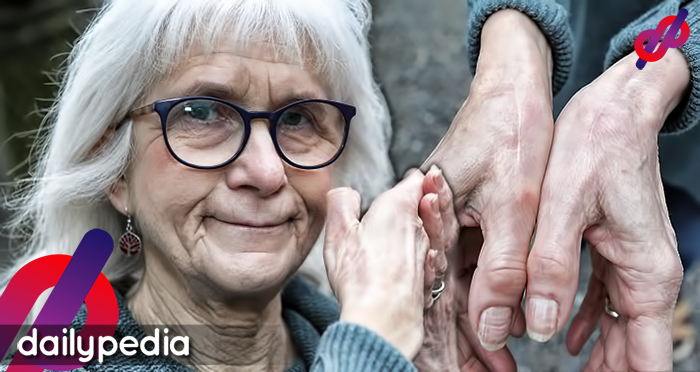- She has the ability to remain calm in life-threatening situations as she has superhuman healing powers and feels no pain
- This could open doors to a host of new treatments in managing chronic pain and anxiety disorders, and in helping people recover from surgery
- Her wound healed and pain insensitivity scored zero in the test of anxiety and depression
A report from a leading scientific journal said that a good-natured Scottish pensioner has the ability to remain calm in life-threatening situations as she has superhuman healing powers and feels no pain.
71-year-old Jo Cameron was discovered by UK researchers as having a remarkable, and previously unreported, genetic mutation. As published in the British Journal of Anaesthesia, this could open doors for a host of new treatments to manage chronic pain and anxiety disorders in helping people recover from surgery.

Ms. Cameron first caught doctors attention when, aged 65, she sought treatment for a hip problem, which doctors later found to be severely arthritic and needed replacing. After a second painless surgery, the doctors at Raigmore Hospital had decided to have a further investigation on her case.
Based on her medical history, the author said: “She reported numerous burns and cuts without pain, often smelling her burning flesh before noticing any injury, and these wounds healed quickly with little or no residual scar.” She was also tested to eat fiery Scotch bonnet chills and “without any discomfort, but a short-lasting ‘pleasant glow’ in her mouth.”
Ms. Cameron has no idea of the unusual little pain she feels and had thought that was normal. To learn about her ability, it fascinated her so much with what it can do for others.
“I had no idea until a few years ago that there was anything that unusual about how little pain I feel – I just thought it was normal,” Ms. Cameron said.
“Learning about it now fascinates me as much as it does anyone else.”
https://www.instagram.com/p/Bv9gK5GgFzN/?utm_source=ig_web_copy_link
For more study, they referred her to pain geneticists at University College London and the University of Oxford. They have discovered two genetic mutations, one gene called FAAH (Fatty Acid Amide Hydrolase), which is very well-known to pain researchers.
“The FAAH gene plays a role in the body’s endocannabinoid system, the parts of the central nervous system which play a role in pain, memory, and mood and which the compounds in cannabis act on.”
The second gene is previously been written off as “junk DNA” with no useful purpose. Now it is called out as “Faah-Out”, as it controls the Faah gene.
Like in a recent car accident she experienced, her wound healed and pain insensitivity scored zero in a test of anxiety and depression, as it meant she never paniced in dangerous situations.
Because of her old age, the only weakness she has is that she was moderately absent-minded and has always been prone to forgetting keys or losing her train of thought.
“The implications for these findings are immense,” said Dr. Devjit Srivastava, the Raigmore pain consultant who diagnosed her.
https://www.instagram.com/p/Bvi7TUAh6_3/?utm_source=ig_web_copy_link
Despite using modern painkillers, half of the patients who are recovering from surgery still experience moderate to severe pain.
There a possibility that the Faah-Out gene is the key to unlocking the pain reducing the potential of the Faah gene but still other attempts have failed.
“The findings point towards a novel pain killer discovery that could potentially offer post-surgical pain relief and also accelerate wound healing,” Dr. Srivastava said.
“We hope this could help the 330 million patients who undergo surgery globally every year.”
Ms. Cameron said she would “be elated if any research into my own genetics could help other people who are suffering.”



